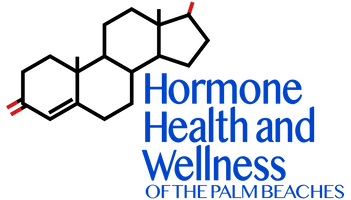Understanding the Link Between Low Testosterone, High Cortisol Levels, and Depression in Men

Hormonal imbalances can significantly affect men's health, particularly concerning low testosterone, high cortisol, and depression. Understanding the relationship among these factors is essential for promoting men's mental health and well-being.
What Is Testosterone and Its Role in Men's Health?
Testosterone is a vital hormone in men that influences mood, energy levels, and overall health. Low testosterone levels can lead to various symptoms, including fatigue, decreased libido, and depression.
How High Cortisol Levels Affect Men's Mental Health
Cortisol, often referred to as the stress hormone, is produced by the adrenal glands. Chronic stress leads to increased cortisol levels, which can have adverse effects on both physical and mental health. Recent research highlights that high cortisol levels contribute to depressive symptoms, creating a potential cycle of hormonal imbalance.
Recent Studies on Testosterone and Depression
The Journal of Clinical Psychiatry (2020):
This meta-analysis found a significant link between low testosterone levels and increased depressive symptoms in men. The study suggests that testosterone replacement therapy (TRT) may improve mood and alleviate depression in men with low testosterone.
Psychoneuroendocrinology (2021):
This research demonstrated that higher cortisol levels are linked to depressive symptoms. Men with chronic high cortisol not only face mood issues but also experience lower testosterone levels, exacerbating the problem.
Hormones and Behavior (2019):
This study revealed that elevated cortisol can suppress testosterone production. Men under chronic stress exhibited higher cortisol and lower testosterone levels, leading to an increased risk of depression.
The Interplay of Testosterone and Cortisol
Understanding the link between testosterone and cortisol is crucial. Elevated cortisol levels can lower testosterone production, contributing to symptoms of depression in men. Recognizing and addressing these hormonal imbalances can support better mental health outcomes.
Practical Solutions for Balancing Hormones
To tackle the issues of low testosterone and high cortisol, consider these practical approaches:
-
Testosterone Replacement Therapy (TRT):
TRT can effectively raise testosterone levels, improving mood and overall well-being. -
Stress Management Techniques:
Engage in mindfulness, therapy, or regular exercise to help reduce cortisol levels, which can positively support testosterone production. -
Routine Health Check-ups:
Regular assessments of hormone levels can help identify imbalances early and prompt timely intervention.
Conclusion: Improving Men's Health Through Hormonal Balance
Understanding the correlation between low testosterone, high cortisol, and depression is vital for men's health. By addressing these hormonal imbalances through effective treatments like testosterone replacement therapy and stress management strategies, men can enhance both their physical and mental health.
If you are experiencing symptoms of low testosterone or are concerned about your hormonal health, please contact us at Hormone Health and Wellness of the Palm Beaches.
I have spent my professional career helping patients with these challenges, and I look forward to helping more men every day to reach their best levels of health and wellness.
All the Best,
Dr. Curt
